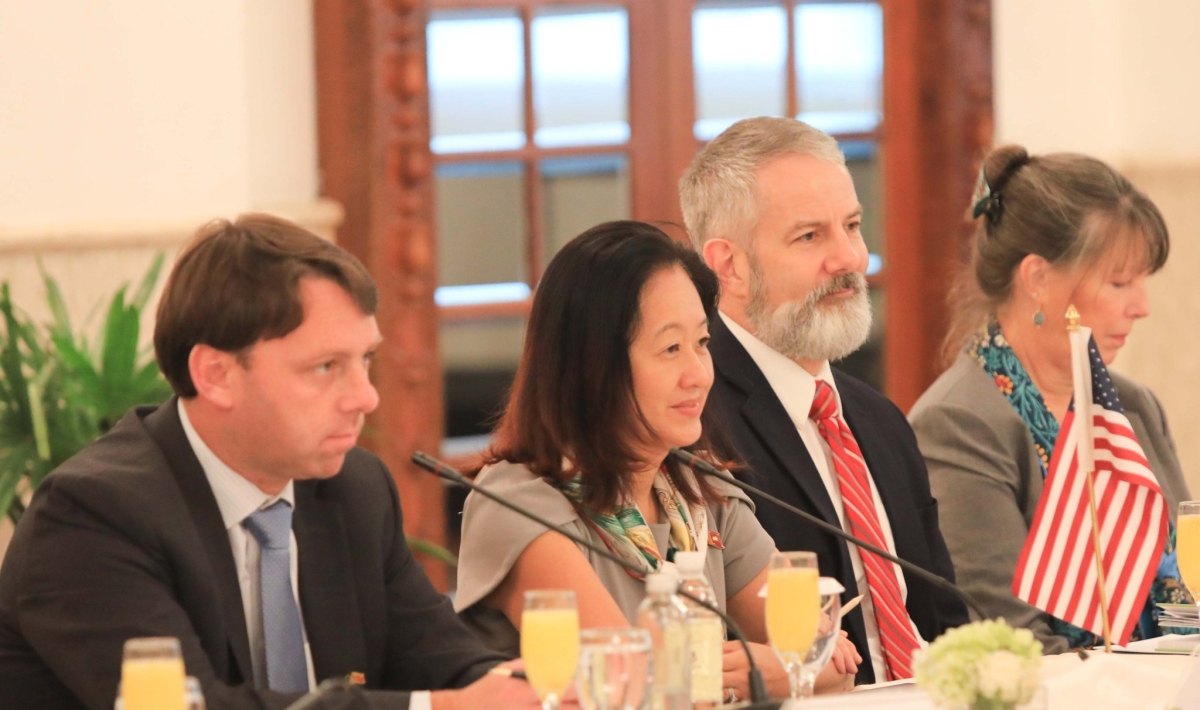Sri Lanka and the United States convened the fourteenth Trade and Investment Framework Agreement (TIFA) Council Meeting in Colombo today, reaffirming their dedication to bolstering trade and investment relations. Co-chaired by Mr. K.J. Weerasinghe of the Government of Sri Lanka and Mr. Brendan Lynch, Acting Assistant United States Trade Representative for South and Central Asia, the technical-level meeting witnessed constructive discussions on various critical matters.
During the TIFA Council meeting, both delegations addressed policies impacting the investment climate, recent labour reforms, intellectual property protection and enforcement, customs and trade facilitation, technical barriers to trade, and market access for several key sectors, including apparel, gem and jewellery, and agricultural products.
Of noteworthy importance, the discussions prominently featured a shared commitment to enhancing transparency and efficiency in approving foreign direct investment (FDI) and adopting robust anti-corruption measures. Sri Lanka provided updates on its proposed anti-corruption legislation, seeking valuable technical assistance and training from the U.S. government, underlining the significance of fighting corruption in fostering domestic economic growth and attracting foreign investment.
The meeting also highlighted the Biden-Harris Administration's dedication to workers' rights and Sri Lanka's ongoing labour law reform efforts. It underscored the importance of consulting relevant stakeholders and ensuring public review and comment in the reform process, with Sri Lanka detailing its procedures for labour law reforms and the United States expressing readiness to support these endeavors.
Additionally, both nations discussed the reduction of agricultural trade barriers to enhance food security in Sri Lanka, with the United States advocating for greater market access for U.S. exports of agricultural products, including animal feed. The role of biotechnology in sustainable agriculture and food security was also a subject of exploration.
Furthermore, intellectual property (IP) protection and enforcement were reaffirmed as pivotal elements for bilateral trade and innovation, with Sri Lanka sharing updates on its IP legislative reforms and the United States offering valuable capacity building support.










